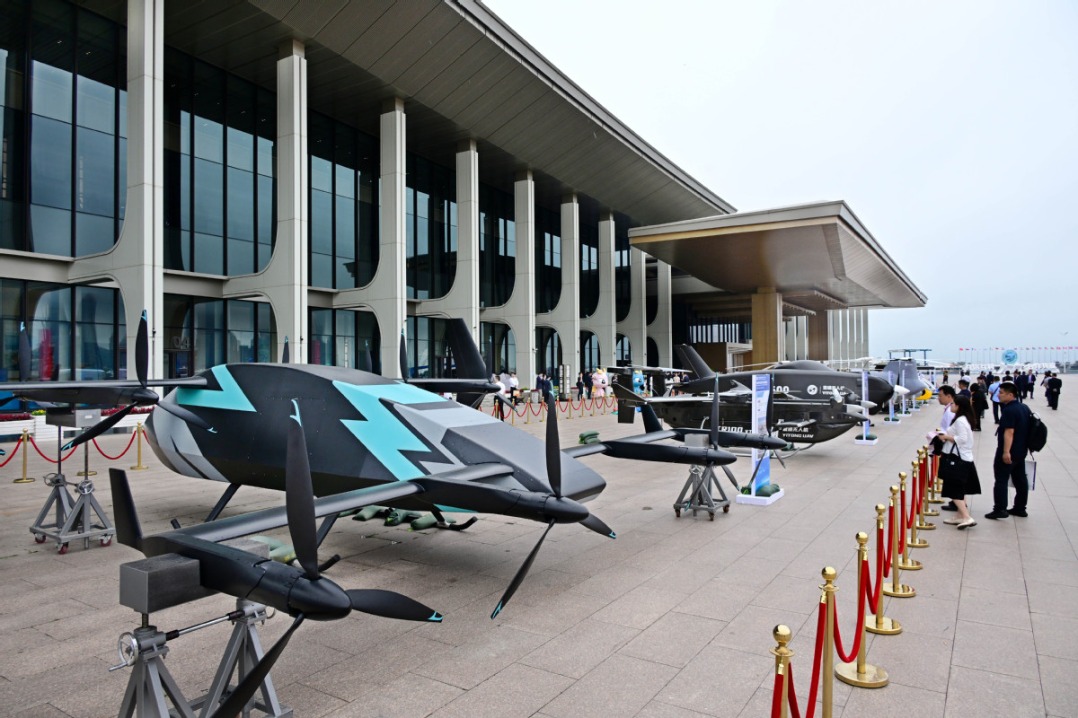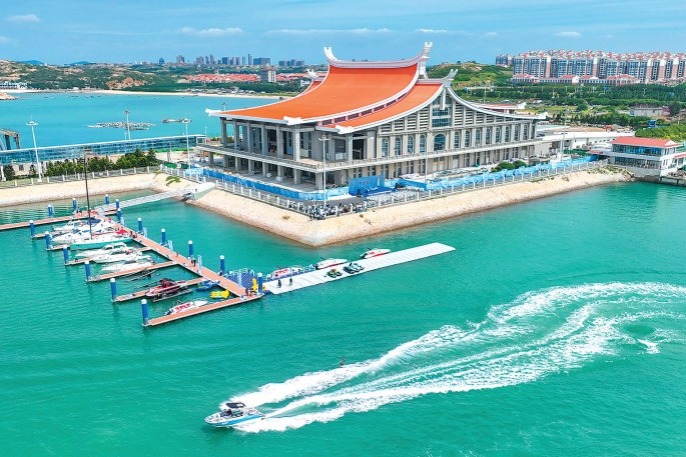BMW steps out to lead responsibility for recycling and reuse of batteries

With an average life span of five to eight years, new energy vehicle batteries are entering a peak retirement period, prompting automakers to showcase their commitment to long-term and sustainable development by addressing the issue of battery recycling.
China recycled and utilized 115,000 metric tons of power batteries in the first five months of this year, surpassing the total of 102,000 tons for the whole of 2022, according to data from the Ministry of Industry and Information Technology.
The nation is expected to retire 820,000 tons of power batteries by 2025 and the figure is expected to surpass 2.6 million tons after 2028. Managing the disposal of this substantial volume of retired power batteries has become a focus amid rapid growth in the country's NEV sales.
At the 2023 World New Energy Vehicle Congress held in Haikou, South China's Hainan province, from Thursday to Saturday, German premium automaker BMW announced that every retired battery from the brand's electric vehicles will be recycled and reused in its supply chain system. This is thanks to the upgraded BMW high-voltage battery life cycle management system.
The automaker has been developing its own power battery traceability management system since 2017 and introduced a self-developed high-voltage battery traceability platform in 2018, complying with national regulations. BMW has since upgraded it to a smarter battery management system as of Sept 30.
Empowered by digital technology, the platform ensures transparency and traceability throughout each battery's life cycle. The automaker has deepened its collaboration with Zhejiang Huayou Recycling Technology to strengthen the closed-loop recycling system, which covers retired power batteries for all BMW BEV models in China, including both domestically made and imported ones.
Sean Green, the newly-appointed president and CEO of BMW Group Region China, said: "We are dedicated to delivering 'green' electric vehicles to our customers, and we take this commitment seriously. Over the past six years, we have continually enhanced our high-voltage battery management and closed-loop recycling of raw materials, ensuring a seamless 'journey home' for BMW end-of-life high-voltage batteries.
"Leveraging digital technologies, we can effectively track each battery, and through collaboration with our dealers, we aim to provide every BMW NEV owner with more reassuring and convenient aftersales and recycling services for batteries."
BMW's high-voltage battery life cycle management system consists of three parts: digital monitoring, closed-loop recycling and battery reuse.
The upgraded platform provides smarter digital monitoring by establishing a comprehensive data loop for the entire battery life cycle. It enables a synchronized data flow between battery manufacturers, BMW Research and Development, BMW production and sales systems, dealerships, logistics suppliers, battery recyclers and other stakeholders.
During the process, BMW sets a unique ID for each battery cell, module and pack to enable cell-level monitoring.
In addition, the new platform uses an algorithm, developed in collaboration with Tsinghua University, to collect data every 30 seconds. A battery health evaluation, based on factors such as battery type, charge and discharge capacity and driving mileage, is sent to the BMW system.
In 2022, BMW partnered with Huayou Recycling to pioneer a closed-loop recycling model for power batteries in China. The collaboration was upgraded in September, incorporating imported BEVs into the system.
Essential materials such as nickel, cobalt and lithium are extracted in high proportions and returned to the BMW supply chain for the production of new batteries for locally produced BMW BEVs.
This is anticipated to significantly reduce carbon emissions from mineral resource extraction and minimize the carbon footprint throughout the entire life cycle of power batteries.
As of the end of November, more than 1,000 tons of recycled materials were recovered and reused to produce new battery cells for domestically made BMW BEVs.
For batteries with a high residual capacity, BMW employs various secondary use models. At BMW's Shenyang production base in Northeast China's Liaoning province, a total of 38 low-speed logistics equipment, such as pallet trucks, have reused power batteries retired from BMW vehicles.
In May, BMW Brilliance's Plant Tiexi Lydia Site began to use end-of-life BMW iX3 battery modules for energy storage in an innovative solar power-storage station, integrating a photovoltaics and energy storage system.
The participation of vehicle owners is crucial for the closed-loop recycling of automotive power batteries, as they must return their batteries to qualified recyclers for the next steps of proper recycling and reuse.
In order to provide customers with hassle-free battery recycling services, BMW has set up battery recycling service outlets in line with national standards in more than two-thirds of its dealerships nationwide. All BMW dealerships are expected to be equipped with such infrastructure in 2024.
BMW's life cycle management of high-voltage batteries is a microcosm of the company's transformation with the aspiration to make individual mobility more intelligent, more human and responsible.
This is in line with its hard target for sustainability: achieving an overall 40 percent reduction in carbon emissions by 2030.
It is also a good example of how BMW is working together with industry partners to create a low-carbon value chain and a circular economy.
The automaker has also made efforts to build a range of "green" BEVs in a responsible way, including the upcoming BMW i5 in 2024 and the Neue Klasse models, which will be produced in Shenyang in 2026.
In the first three quarters of 2023, the automaker sold 69,603 BEVs in China, marking a year-on-year growth of 232 percent.
There are more than 300,000 BMW NEVs on the roads in China now.


Today's Top News
- Exemplary vision drives development
- Lasting bond honors Flying Tigers legacy
- Monetary easing to persist in near term
- Trump, Zelensky, European leaders hold multilateral talks
- China firmly reaffirms sovereignty over Taiwan
- A-share market surges past 100 trillion yuan milestone






























